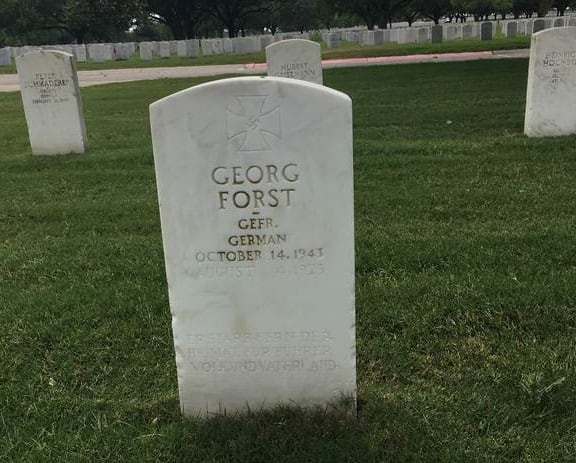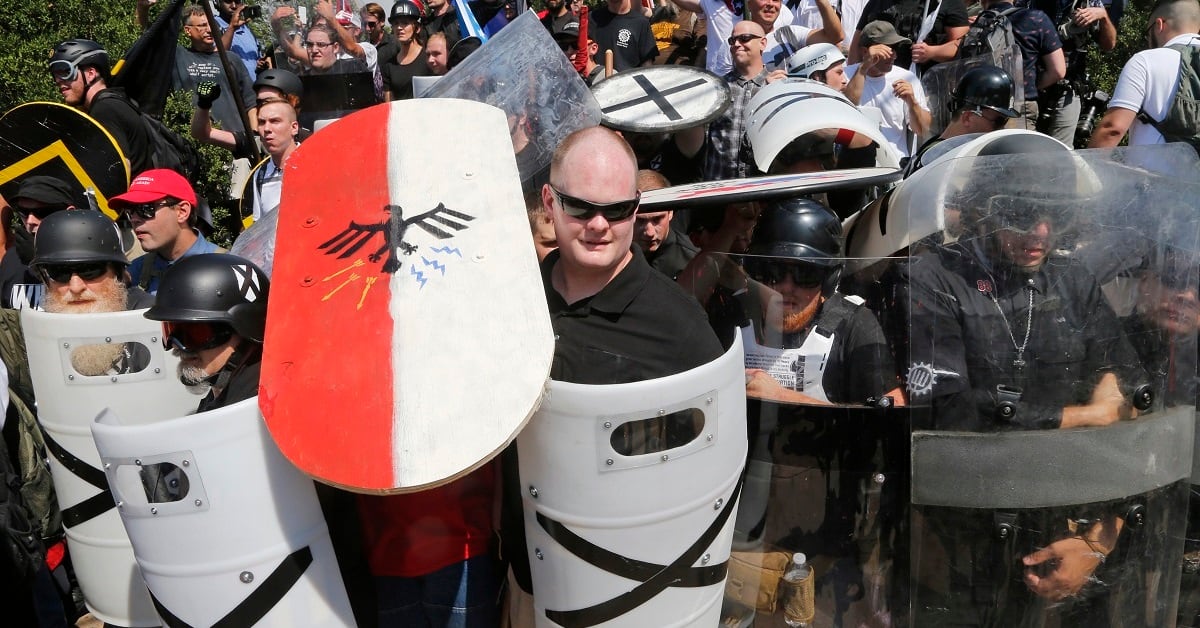Additional advocates are joining calls for federal officials to remove several headstones featuring the Nazi swastika from a pair of Veterans Affairs cemeteries, calling the symbols offensive and potentially dangerous.
“The VA’s defense of the swastika — the preeminent symbol of antisemitism — only gives oxygen to the white nationalist movement,” Eric Ward, a senior fellow with Southern Poverty Law Center, wrote in a release this week.
“The current veterans administration isn’t responsible for the mistakes of past cemetery managers. … But refusal to act, now that those mistakes have come to light is far from a neutral act.”
At issue are three grave sites at two VA cemeteries: Fort Sam Houston National Cemetery in Texas and Fort Douglas Post Cemetery in Utah. Both were used to inter the unclaimed remains of enemy troops following World War II.
RELATED

While most of the foreign troops’ grave markers list only names and dates of death, the three in question are also engraved with with a swastika in the center of an iron cross and in inscription in German which reads “He died far from his home for the Führer, people and fatherland.”
The headstones date back to the 1940s, but gained new attention this week after officials from the Military Religious Freedom Foundation called for the immediate removal of the hateful symbols following complaints to them from veterans.
Mikey Weinstein, chairman of MRFF, called VA’s lack of action on the issue “shocking and inexcusable” and called for VA Secretary Robert Wilkie to apologize to all veterans for the oversight.
In a statement, National Cemetery Administration spokesman Les' Melnyk said that “VA will continue to preserve these headstones, like every past administration has.”
“The National Historic Preservation Act of 1966 assigns stewardship responsibilities to federal agencies, including VA and Army, to protect historic resources, including those that recognize divisive historical figures or events,” he said.
Weinstein has promised legal action to remove the divisive grave markers. Several other civil liberty groups have joined that effort, calling the arguments of sites’ historic importance unconvincing.
“We are called to love our enemies, but that does not mean embracing their hateful causes or symbols,” said Rev. Nathan Empsall, campaigns director for Faithful America.
“With anti-Semitic violence on the rise and far too many elected officials advocating white nationalist policies in the name of our faith, Christians bear a special responsibility to speak out whenever the twin forces of anti-Semitism and white nationalism raise their evil heads.”
Ward said that VA officials have “a responsibility to veterans and active-duty troops to disavow symbols of hate.”
RELATED

Weinstein said in the few days since he has highlighted the issue, angry critics have sent him emails using anti-Semitic slurs to attack the removal plans.
More than one-third of all active-duty troops and more than half of minority service members say they have personally witnessed examples of white nationalism or ideological-driven racism within the ranks in recent months, according to a survey of active-duty Military Times readers late last year.
Poll participants reported witnessing incidents including racist language and discriminatory attitudes from peers, but also more specific examples like swastikas being drawn on service members’ cars, tattoos affiliated with white supremacist groups, stickers supporting the Ku Klux Klan and Nazi-style salutes between individuals.
Leo covers Congress, Veterans Affairs and the White House for Military Times. He has covered Washington, D.C. since 2004, focusing on military personnel and veterans policies. His work has earned numerous honors, including a 2009 Polk award, a 2010 National Headliner Award, the IAVA Leadership in Journalism award and the VFW News Media award.





